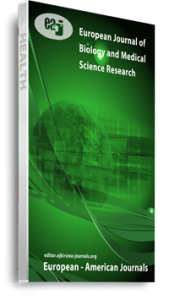The environmental toxicology studies the effect of environmental toxicant on the health of organisms and on the different compartments of the environments. Different scientific studies have been carried out over the years on the toxic effect of the silk dyes waste effluents on organisms. But current study has been premeditated to evaluate the effect of Moringa oleifera (Lam) leaf extract on albino male mice Mus musculas which is subjected to silk dye waste. The sperm profile and histopathology of testis have been taken on accounts. Five sets of animals i.e. Group I (Control), Group II (fed with 50% silk dye), Group III (fed with 100% silk dye), Group IV (mice fed with 50% dye treated with M. oleifera leaves powder), Group V (mice fed with 100% dye treated with M. oleifera leaves powder) have been taken for experiment. The dose of silk dye was 2ml/day to both groups II and III and M. oleifera leaf is given as per the standard dose (300mg/kg b.w) to both animals of group IV and V. The results show that the M. oleifera leaf extract when fed to Gr IV and V mice, demonstrated the regeneration of germinal epithelial cells and basement membrane, significant mitigation of spermatogenesis in different stage of testis when compared with mice of Gr- II and III. Then the M. Oleifera leaf increased significantly number of sperm count and % of sperm motility but decrease the % of sperm mortality of mice when compared with Gr-II and III at 5% and 10% level of probability. This study suggested that the extract may have beneficial effect on histological sections of testis and sperm count, mortality and motility.
Keywords: Moringa Oleifera Leaf Powder, Silk Dye Waste, Sperm Parameters, Swiss Albino Male Mice, Toxicity Assessment, histopathology, testis

